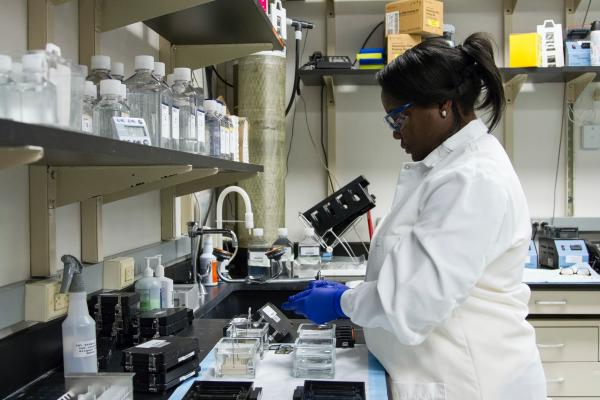The Medical Marijuana Research Expansion Act Reintroduced in Congress: What Does It Do?
The U.S. House of Representatives on Tuesday passed a revised version of the bipartisan marijuana research bill that would dramatically expand scientific research, just days after it was introduced in Congress .
Members approved the measure from Representatives Earl Blumenauer (D-OR) and Andy Harris (R-MD), in a vote of 325 to 95, Marijuana Moment reported.< /p>
The Medical Marijuana Research Expansion Act, which was reintroduced in February 2021 and passed last April by the House of Representatives, aims to facilitate cannabis-specific scientific research and potential drug development . In addition, the legislation would greatly expand scientific research on marijuana, allowing scientists to study dispensary products.
"This bill facilitates necessary and rigorous medical research, as it does for any other drug claimed to be effective in this country," Harris said. “The American public deserves to know what medical marijuana is for because for anyone with those conditions where it proves helpful it might be a boon, but for other conditions where the claims won't be found worthwhile with rigorous research, it would prove ineffective.”
The measure is now on the verge of ending up on President Joe Biden's desk as independent congressional marijuana reform legislation. Senate action is expected to follow.
BackgroundThe newly revised bill, by Blumenauer and Harris, will ease the process by which researchers apply for permission to study cannabis and will impose time limits on federal agencies to review applications in timely.< /p>
It contains language similar to Senate Bill 253, which members of the Senate passed unanimously last April.
The law provides 60 days for the Office of the Attorney General of the United States (AG) to approve or deny applications from scientists wishing to engage in clinical trials involving the use of cannabis per human subjects.
However, some agencies responsible for reviewing and approving scientists' protocols do not have an explicit timeline for completing their reviews. This is the case of the Secretary of the United States Department of Health and Human Services and the National Institutes of Health before the authorization of the GA. “Currently, the limited variety of cannabis cultivars available to federally licensed researchers do not represent the type or quality of cannabis products currently available in legal state markets,” said NORML Deputy Director, Paul Armentano. “The fact that nearly half of American adults have legal access to these multitudes of cannabis products, but not the best scientists in our country, is the height of absurdity and an indictment of the current system. This proposal misses the opportunity to change that reality. »
"The law also requires that

The U.S. House of Representatives on Tuesday passed a revised version of the bipartisan marijuana research bill that would dramatically expand scientific research, just days after it was introduced in Congress .
Members approved the measure from Representatives Earl Blumenauer (D-OR) and Andy Harris (R-MD), in a vote of 325 to 95, Marijuana Moment reported.< /p>
The Medical Marijuana Research Expansion Act, which was reintroduced in February 2021 and passed last April by the House of Representatives, aims to facilitate cannabis-specific scientific research and potential drug development . In addition, the legislation would greatly expand scientific research on marijuana, allowing scientists to study dispensary products.
"This bill facilitates necessary and rigorous medical research, as it does for any other drug claimed to be effective in this country," Harris said. “The American public deserves to know what medical marijuana is for because for anyone with those conditions where it proves helpful it might be a boon, but for other conditions where the claims won't be found worthwhile with rigorous research, it would prove ineffective.”
The measure is now on the verge of ending up on President Joe Biden's desk as independent congressional marijuana reform legislation. Senate action is expected to follow.
BackgroundThe newly revised bill, by Blumenauer and Harris, will ease the process by which researchers apply for permission to study cannabis and will impose time limits on federal agencies to review applications in timely.< /p>
It contains language similar to Senate Bill 253, which members of the Senate passed unanimously last April.
The law provides 60 days for the Office of the Attorney General of the United States (AG) to approve or deny applications from scientists wishing to engage in clinical trials involving the use of cannabis per human subjects.
However, some agencies responsible for reviewing and approving scientists' protocols do not have an explicit timeline for completing their reviews. This is the case of the Secretary of the United States Department of Health and Human Services and the National Institutes of Health before the authorization of the GA. “Currently, the limited variety of cannabis cultivars available to federally licensed researchers do not represent the type or quality of cannabis products currently available in legal state markets,” said NORML Deputy Director, Paul Armentano. “The fact that nearly half of American adults have legal access to these multitudes of cannabis products, but not the best scientists in our country, is the height of absurdity and an indictment of the current system. This proposal misses the opportunity to change that reality. »
"The law also requires that
What's Your Reaction?






















